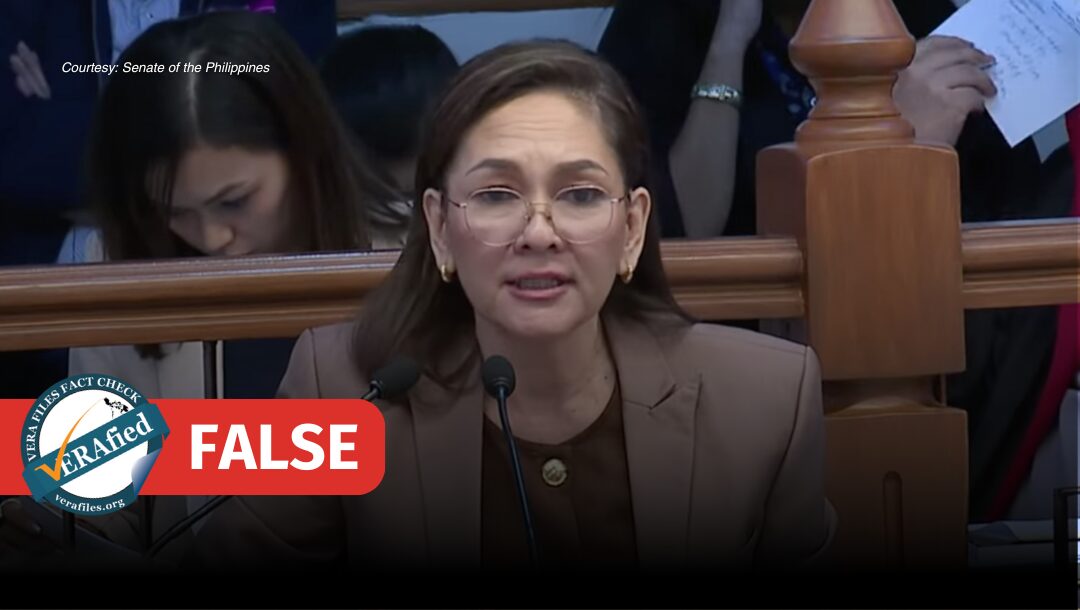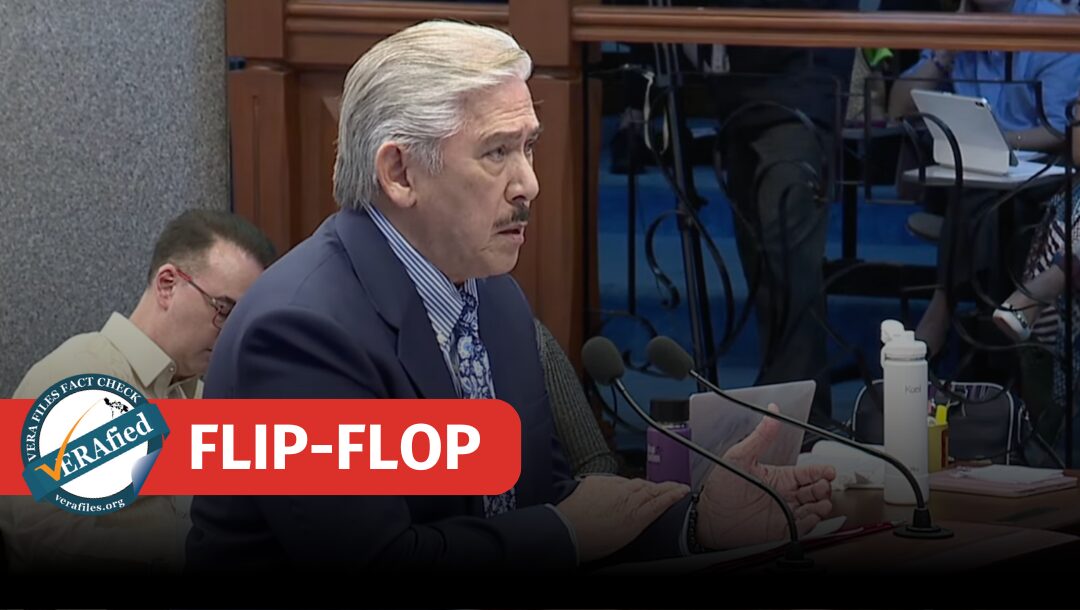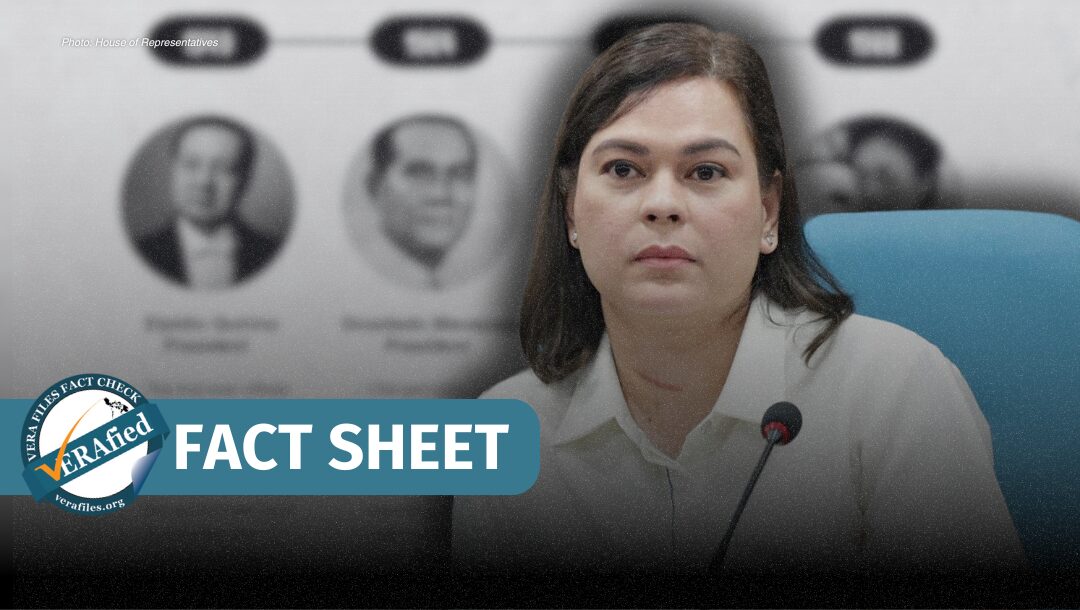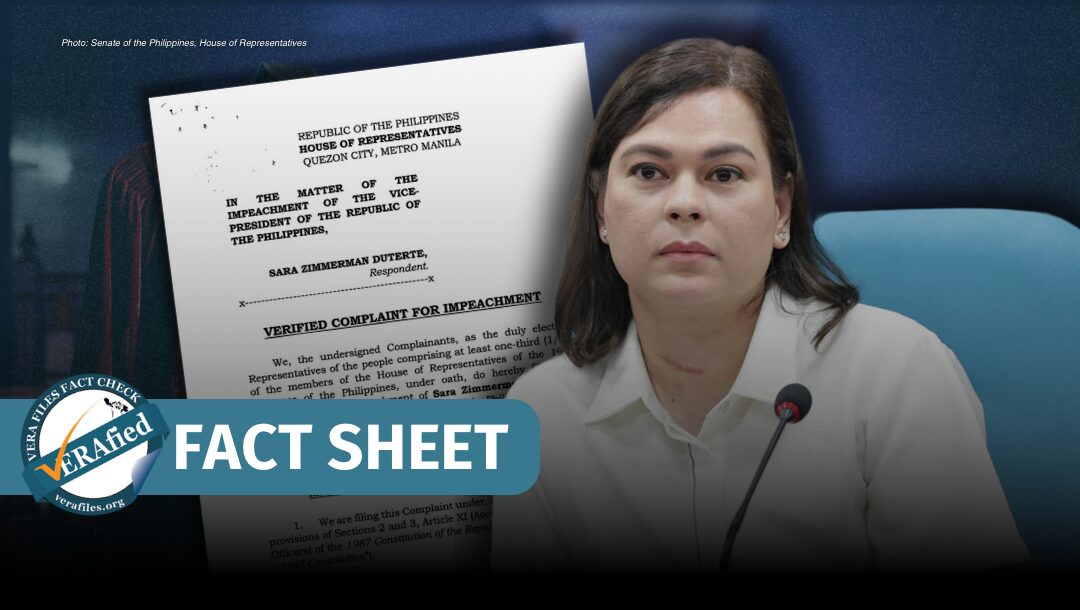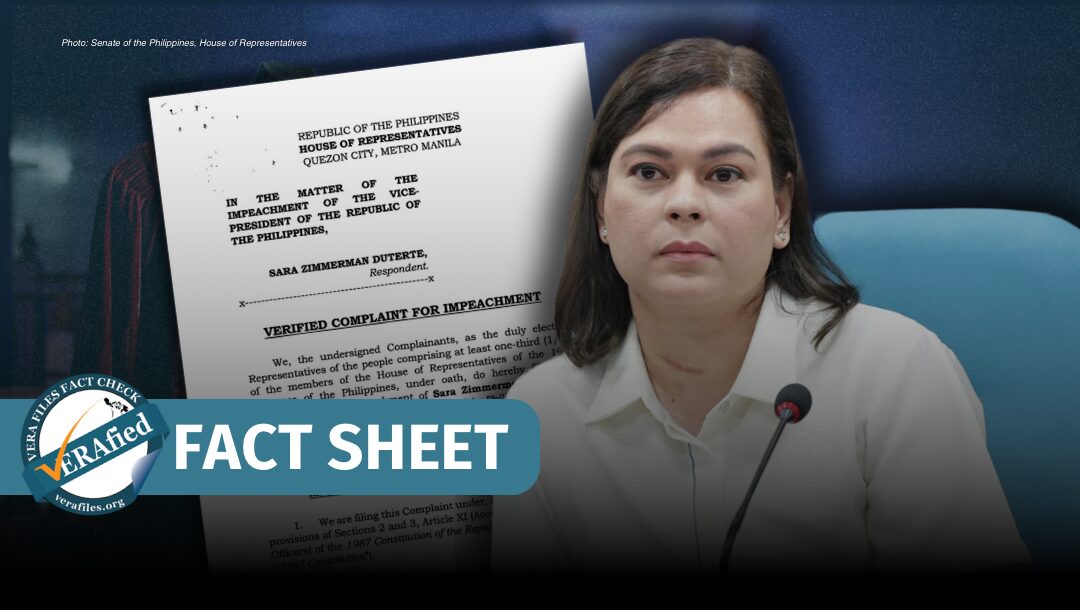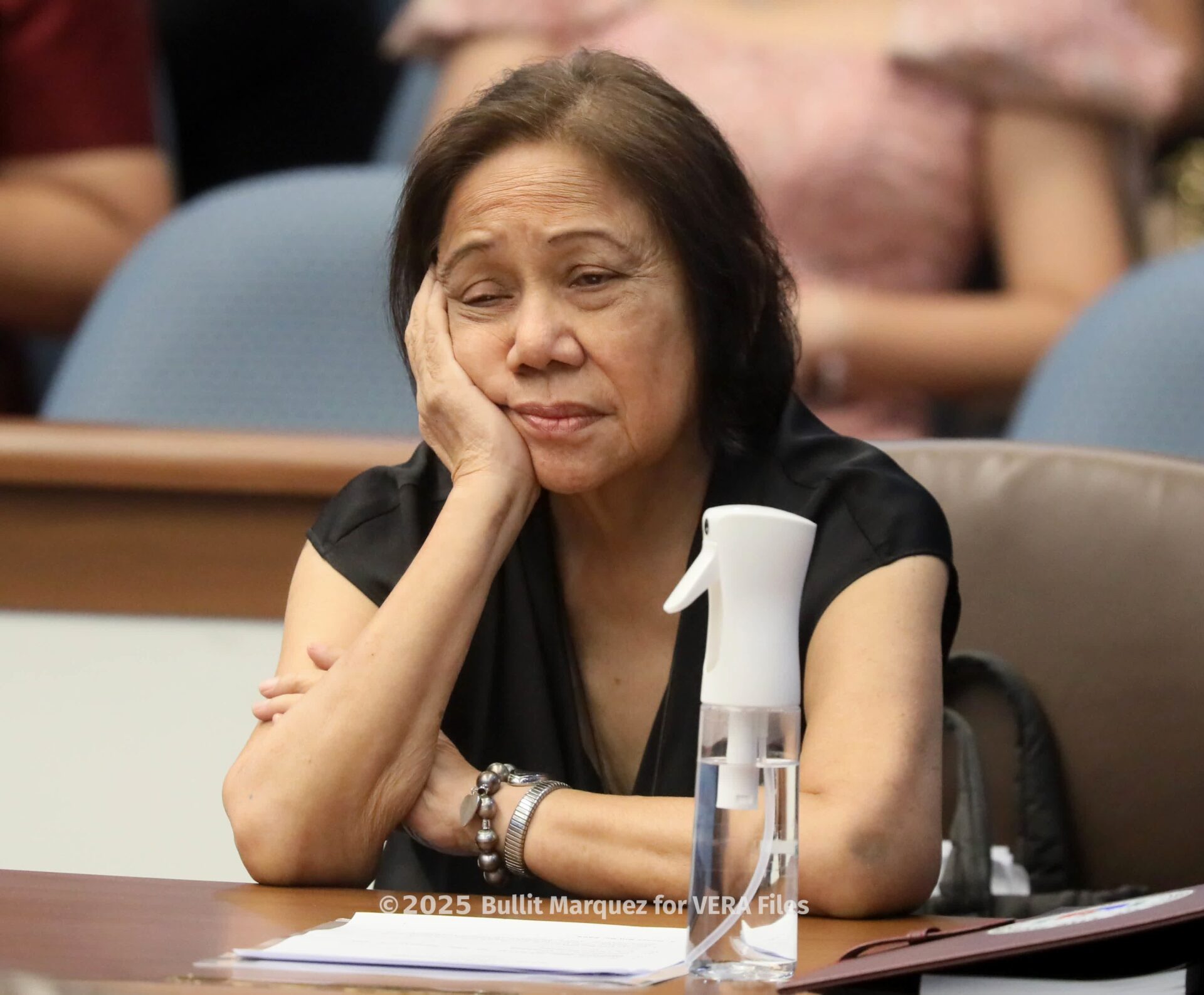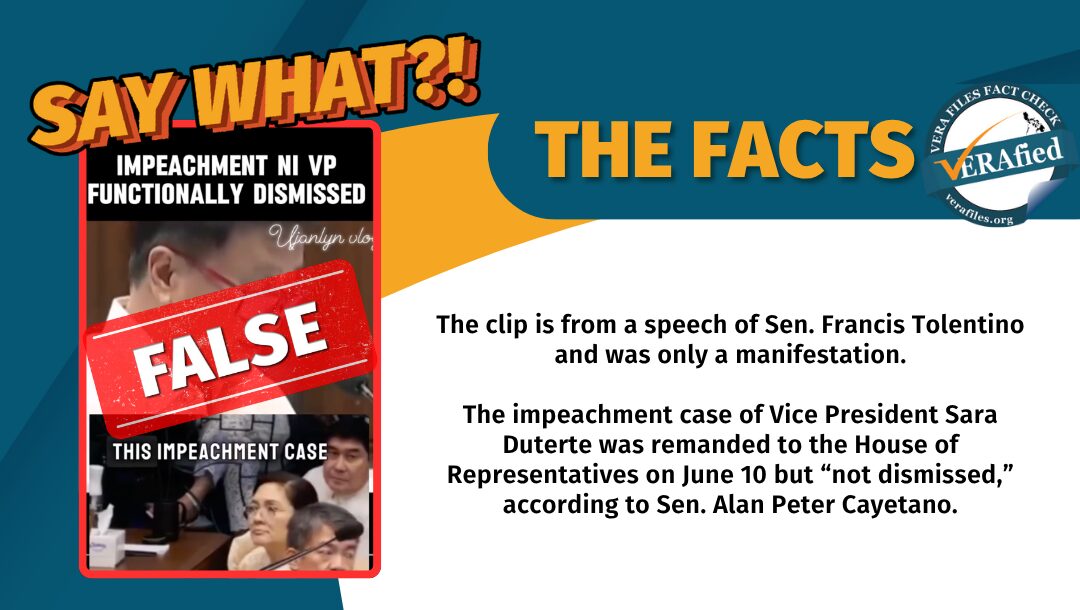During the interpellation on the fate of the impeachment case against Vice President Sara Duterte, Sen. Risa Hontiveros cited two instances where the Supreme Court allegedly reversed its unanimous decision. One case involved the League of Cities of the Philippines v. Commission on Elections and the other, the International Service for the Acquisition of Agri-Biotech Applications, Inc. (ISAAA) v. Greenpeace Southeast Asia.
Hontiveros was wrong. None of the six decisions—including reversals—in the League of Cities v. Comelec case was decided unanimously. The senator has since issued a correction.
STATEMENT
During the Aug. 6 plenary session, Sen. Rodante Marcoleta moved to dismiss the impeachment case following the SC decision declaring it unconstitutional. Thirteen justices voted unanimously on this July 25 decision, with one justice inhibiting himself and another on leave. The case is pending appeal amid a motion for reconsideration submitted by the House of Representatives on Aug. 4.
Minority Leader Vicente “Tito” Sotto questioned Marcoleta, warning that the dismissal of the impeachment case may be “premature” since the SC may still reverse its decision. Doubting this, Marcoleta said:
“On the basis of our experience as a practicing lawyer, Mr. President, ito pong ganitong klaseng desisyon, talaga pong wala na pong kaduda-duda na kahit po mag-file pa tayo ng motion for reconsideration, we are hoping against hope… Wala pa po akong nakitang isang unanimous decision—ewan ko lamang po kung mayroong magbo-volunteer ngayon na abogado—in the last 40 years na sinasabi ay isang unanimous decision na ang karakter niya ay sinabi na ab initio, void ab initio, unconstitutional, violative of due process…”
(On the basis of our experience as a practicing lawyer, Mr. President, for decisions like these, there is no room for doubt even if you file a motion for reconsideration, we are hoping against hope… I have not yet seen any unanimous decision—I don’t know if any lawyer present can volunteer—in the last 40 years that has deemed the character of a unanimous decision to be ab initio, void ab initio, unconstitutional, violative of due process…)
WATCH: Senate of the Philippines official YouTube page, Senate Session No. 6 (August 6, 2025), 48:21 to 49:10 and 2:16:54 to 2:17:22
Correcting Marcoleta and Sotto, who replied that there is always a “first time,” Hontiveros cited cases in which justices reversed their previous unanimous decisions. She argued:
“In fact, the Supreme Court has reversed a unanimous decision in a lot of instances before. Dalawa lang po ang ibibigay kong halimbawa (I will give only two examples). League of Cities of the Philippines versus Comelec; original decision, 2008; reversal on motion for reconsideration, 2009. Isa pa pong halimbawa (One more example), International Service for the Acquisition of Agri-Biotech Applications, Inc. or ISAAA et al. versus Greenpeace Southeast Asia; original decision, unanimous, Dec. 8, 2015; reversed unanimously on motion for reconsideration din (also), July 26, 2016. So hindi lang po tulad ng sinabi ni minority leader na there’s always a first time (So unlike what the Minority Leader said that there’s always a first time), it has happened before.
WATCH: Senate of the Philippines official YouTube page, Senate Session No. 6 (August 6, 2025), 2:30:14 to 20:31:02
However, Hontiveros corrected herself in an Aug. 7 Facebook post:
“Upon checking again, the many reversals in the League of Cities decisions were not decided unanimously.”
Source: Senator Risa Hontiveros official Facebook page, Upon checking again,…, Aug. 7, 2025
FACT
The ISAAA v. Greenpeace Southeast Asia case was indeed decided on unanimously (11-0-3) in 2015, but was reversed also unanimously the following year after the ISAAA and its co-petitioners filed a motion for reconsideration.
However, decisions on the other case cited, League of Cities of the Philippines v. Comelec, were not unanimous. The ruling saw three different reversals from the first decision in 2008 until the final one in 2011, none of them unanimous with one even requiring a re-vote after a tie.
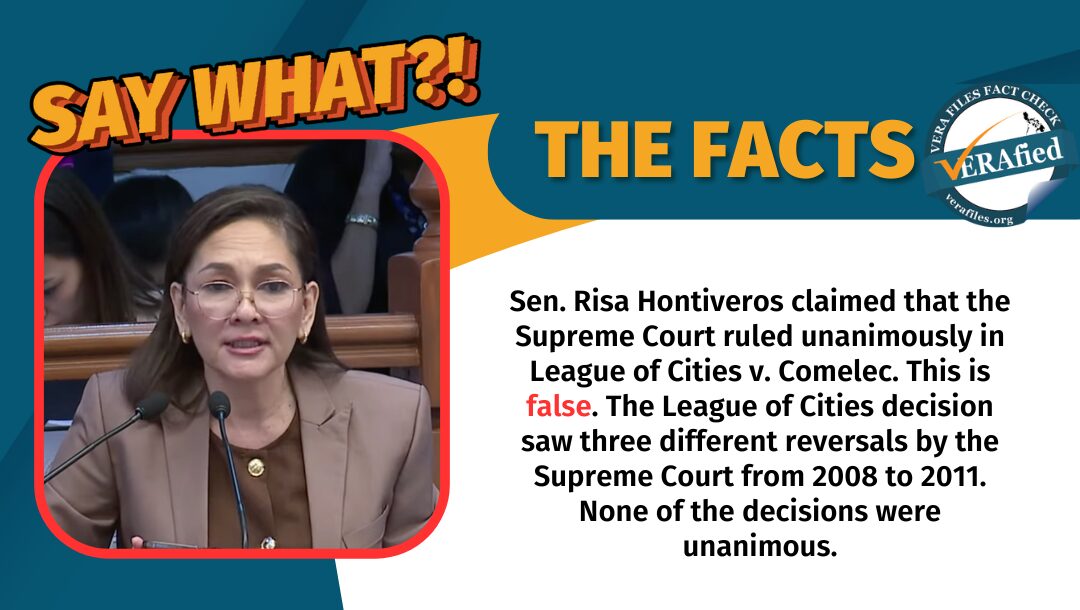
The League of Cities filed a case before the SC in 2007 to declare as unconstitutional the cityhood laws converting 16 municipalities into cities. The court originally ruled on Nov. 18, 2008 that these laws were indeed unconstitutional with six justices in favor, five dissenting,and four abstaining (6-5-4)
The affected municipalities filed two motions for reconsideration in 2009. The first was denied, while the second was affirmed after two rounds of voting due to a tie. The court then declared the cityhood laws constitutional with a vote of 6–4–3. Two of the justices who originally voted had already retired by then, shifting the majority.
After several more MRs were filed by the League of Cities and the affected municipalities, the SC issued a final decision—voting 7–6–2—on April 12, 2011 that the cityhood laws were constitutional.
BACKGROUND
In the 12th Congress (2001 to 2004), the Local Government Code was revised to change the annual locally-generated income requirement for cityhood from P20 million to P100 million. This provision was revised in 2022 to include more specific guidelines.
During the 13th Congress (2004 to 2007), the House of Representatives sought to implement a joint resolution exempting some 24 municipalities whose cityhood bills were not approved in the 11th Congress (1998 to 2001) from the increased income requirement.
The Senate disapproved the resolution, with then senator Aquilino Pimentel Jr. advising the municipalities to add an exclusion provision in a common clause in the new bills they intended to have re-filed. Lawmakers from 16 of the 24 affected municipalities re-filed such bills, which all lapsed into law from March to July 2007.
In line with its duties outlined in Article X, Section 10 of the Constitution, Comelec must hold a plebiscite for voters of the affected municipalities to ratify the cityhood laws.
The League of Cities then filed a case against Comelec and the newly-converted cities, seeking to declare as unconstitutional their respective cityhood laws, arguing that these violated the Constitution and equal protection due to their exemption from the revised income requirement.
